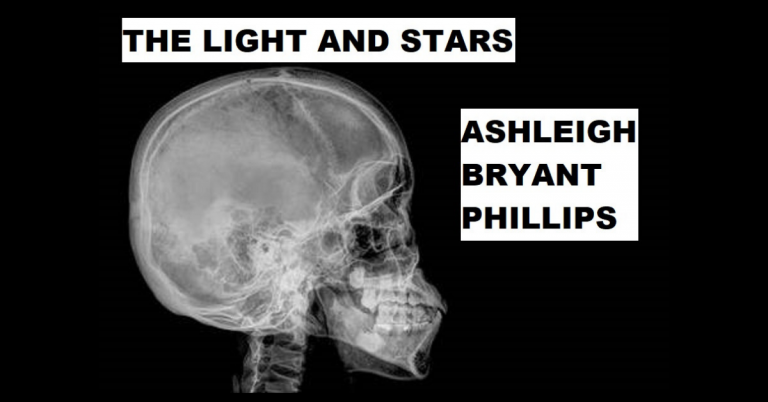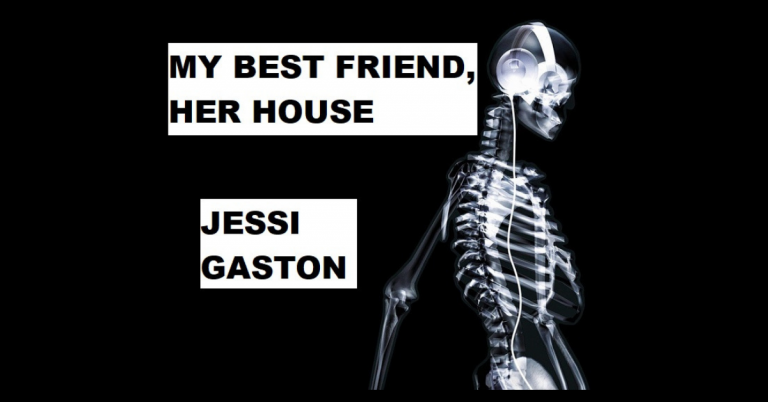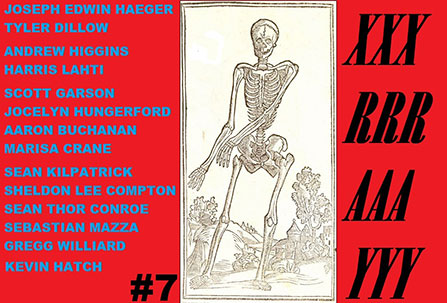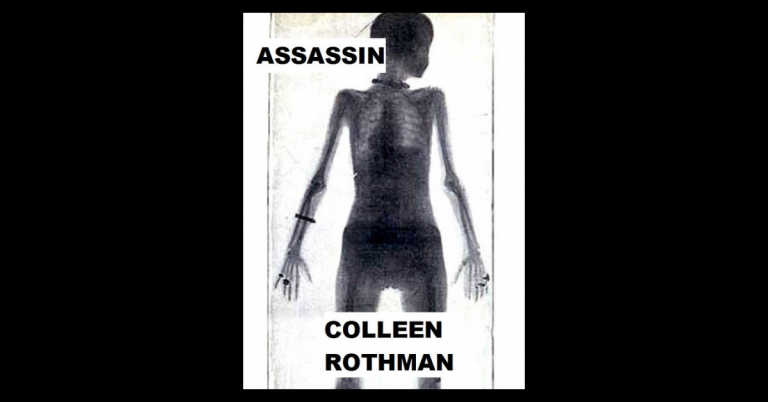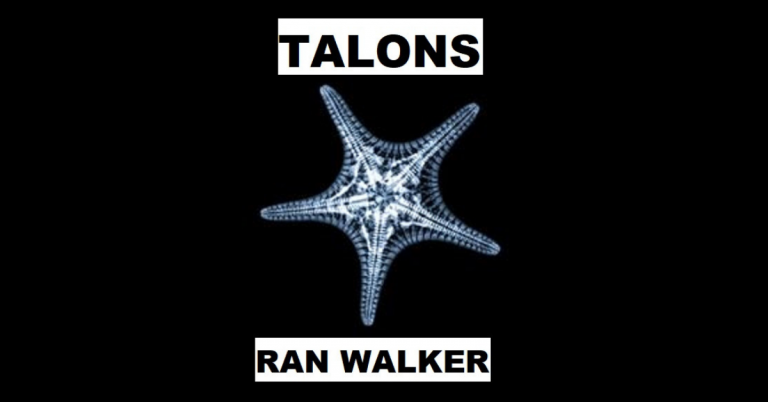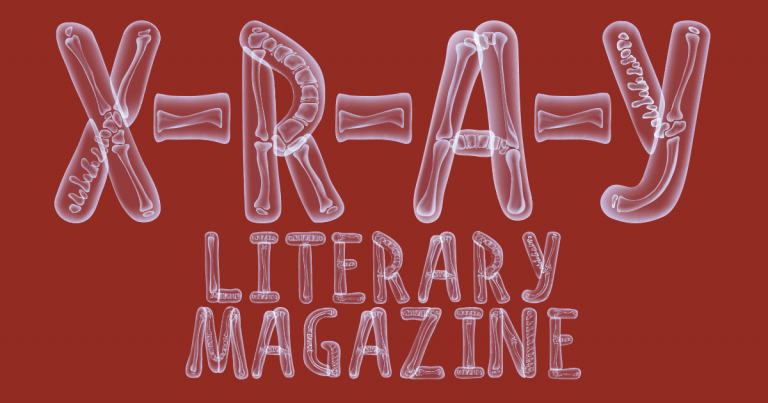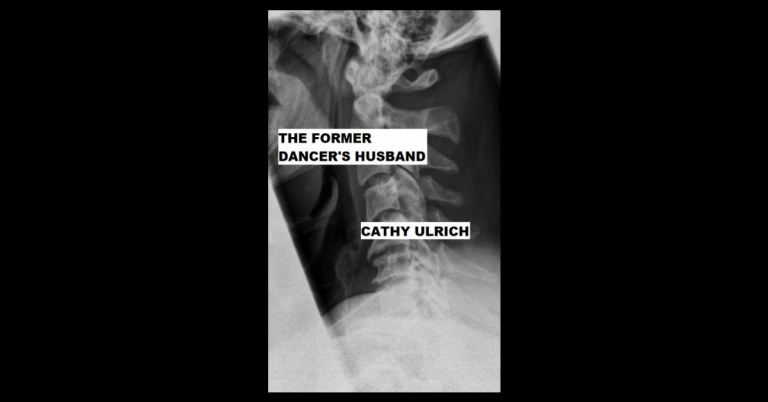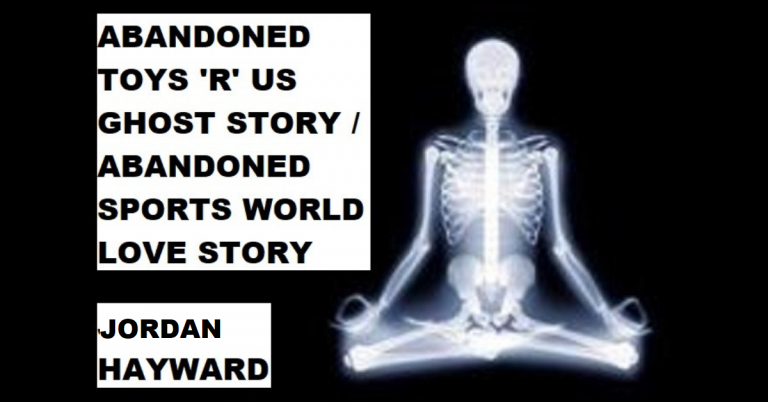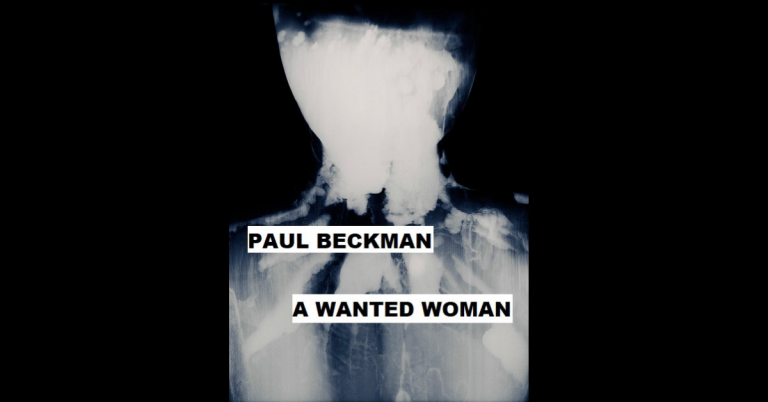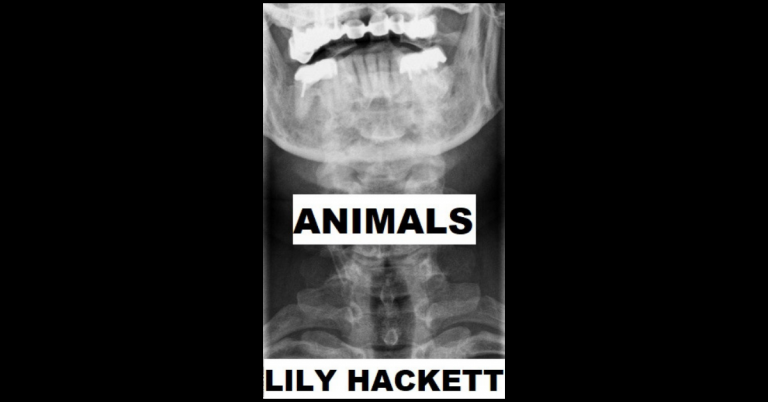
ANIMALS by Lily Hackett
I only ordered so I could have the wine got for the cat’s man. But in the takeaway box, they had black shells and polished eyes. They had big claws. I searched for ‘Clawed prawns’. Crayfish. I left a message. I saw one twitch, thrash in the sauce. Its shining eyes were on me. It crawled out from the tub. The seven legs went click across the tub’s rim and click click, softly, on the wooden table. It moved clumsily, trailing chopped shallot. The second followed. Each was as long as my hand. They had toad bellies and dog whiskers. They were flat and black as lice.
They might begin to skitter. If they dropped off the table, I would have to stamp them underfoot. And I hated the sound of small things cracking, spines of game birds, or the muffled shatter of a snail shell. They crayfish were moving faster, going click click, softly, on the wooden table. I was slow opening drawers so nothing slammed. I rustled out a pyrex salad bowl. I turned the bowl quick onto the table like a dome. I trapped both, but snipped a leg with the glass rim. It felt worse to hurt them than it would to hurt something nice. Seeing one bug crippled, guilt only made me want them dead. I thought I could fume them dead. I lit four cigarettes and edged them one by one under the dome. When the plush smoke cleared they seemed bigger but had clustered their legs under.
I could see white body through their joints’ splits. Their shells wheezed and popped. I couldn’t know if it hurt, if growing was something that they did, or that happened to them. Their eyes were too polished to see inside. They shook the shells loose. Through the glass and their bodies I saw the tiny violet systems. I liked their sudden fleshness, could trick my eye that they were hairless pink kittens. I wasn’t soft. I stoned a grouse once and made myself wring it finished. I watched the dome. They ate their shells. I pushed the leg back into the dome and one ate that. I watched their spindled mouths. Their bodies had grown so they pressed flush up against the glass. Flesh hardened, fused, and the one new shell made one new bug. It had a quantity of legs, four eyes, and one stout, glossy tail. It was as orange as new peel all over. I had looked so long and closely that it couldn’t disgust me. It was like a terrible thought, that through repetition of thinking stops its horror and becomes the mind’s friend. Plus, I had no choice. I couldn’t ring vets anymore. It was big though. I lit two more cigarettes, and edged them under the dome to keep it still. I went and ran a bathful. I came back into the kitchen. I lifted the dome. The shell against the glass went click click. I wrapped the bug in a clean tea-towel and held it tight to my body. I didn’t love it - I didn’t want it to snip me. A one leg trailed on my arm. I meant to place it gently but I threw it off me. It scraped the tub’s avocado coat. It was very tangerine against dull green. The scrape sound called to the twin enamel of my mouth. I didn’t want to have to fume the whole room. I got the bottle from the kitchen, pulled the thick cork, smelling straw and alcohol. I poured it on and into the bug in the tub. I sat on the avocado toilet and had a swig. I laughed, I was sick in the avocado sink, I rinsed it away. I went to bed. I came down and put a chair against the bathroom door. I went to bed.
The cat’s man had this pregnant cat. It’s body was like a sack. At the time I was still walking out, buying stock cubes, buying medicine. The cat dragged her slack along the ground. I wondered if she might fray her belly on the pavement, if she might split, over by the betting places, and spill her kids. The man really loved it, called it Miss, Lady. I also wondered if when the cat split, just one small boy would spill, with a tail and tiny incisors. They’d have to lock the cat’s man up for crimes of sickness. It followed me back. It settled, fat and loose in the front of the machine. I was half-cut from stopping off. ‘Littel woman’ I said. I opened a tin of curried chicken. She settled her head away from it. ‘Spoiled bitc’ I said. The cat wouldn’t eat. It wouldn’t leave either. She was a serene thing, queenly feeling. I imagined the cat’s man placing sushi-grade on his flat tongue for nibbling. I kicked her belly. She split like a sack. Seven kittens spilled onto tile. The cat couldn’t live, bled and died. I was practical. Bricked rabbits in lanes with tics in their eyes. I filled the mop bucket. I drowned them with quickness and skill. It was all found out somehow. They hissed in shops. I couldn’t buy the things I needed or call anyone about the crayfish.
In the morning I took the chair from the door. The crayfish was grown dog-big. I used what I had to make it quiet. Christmas ales with big percents. Hot Mahon gin with a windmill on the bottle. Advocaat, split in the bathwater. ‘I won’t let you drink aloen’ I said. I think it roamed at night. I heard click click when I woke having headaches. It was always back in the tub by morning. ‘Yur sly’ I said.
I clicked a video. A chef spoke strictly. ‘Lobsters feel no pain’. She took a glistening knife and struck through the head. She boiled salt water. ‘It’ll feel at home’ she said. She smirked. She took a different knife and cracked the shell in half. She picked out white chunks and dipped them in melted butter. ‘Respect it’ she said. Clicked. A lobster in boiling water made a whistling sound. ‘This is not a scream. This is air leaving the shell’. A woman in a foreign country chopped the chubby legs off a crab while it was living. She burned onions. A living crab in another pan. This one had its legs and was grabbing ginger to its mouth, eating what seasoned it. I ordered a knife. Japanese. Clicked. Videos: my knife cutting tomatoes so thinly they looked like glass. My knife cleanly halving a single sheet of paper. I ordered butter, wrapped in wax paper, from Normandy.
The crayfish was on the turn, looked rotten with black spots. The water was black, particularly grisly: stout and blue curacao. It tried to roam again. I pushed it back into the water and buttered the sides of the tub, a trick done once or so on ladybugs. The knife came rolled in tan canvas, tied with leather string. I practised it on day cushions. I couldn’t use fruit or the like – didn’t keep much fresh in – but didn’t before really either. I brought it to the bathroom. After days I saw white flesh in the splits. The shell whistled like an old home. The body shivered off the shell. I dropped the knife through water through into the head. It was brainless, without pain. Black punch slopped. I drained the bath. I thought I might mount the heavy shell, like a fisherman, if I could easily learn how.
I went and melted six pats of that good butter in a pan, swirling it so the curds couldn’t catch. But when I returned to the bathroom, the body looked grey, like its tracts were filled with ash. I gripped again and sliced meat from it. It was sour, sick-tasting. I felt briefly grieved for six or so planned meals. I set the knife back on the avocado sink. I put a towel across the body and heaved it up. It was big-dog big. I carried it through the kitchen and through double door onto the garden. Outside was brown. Everything was dying according to its time. I dumped the bundle and took to the spade, Irish, made with oiled red wood. It wasn’t much under: the information had dictated deeper. But nothing had disturbed it except myself. Inside, a dozen other bundles. I rolled the crayfish in. ‘Iam a practical woman’ I said to the spiders on the leaves. ‘Repsect it’ I said to the flies gummed up in the webs.

